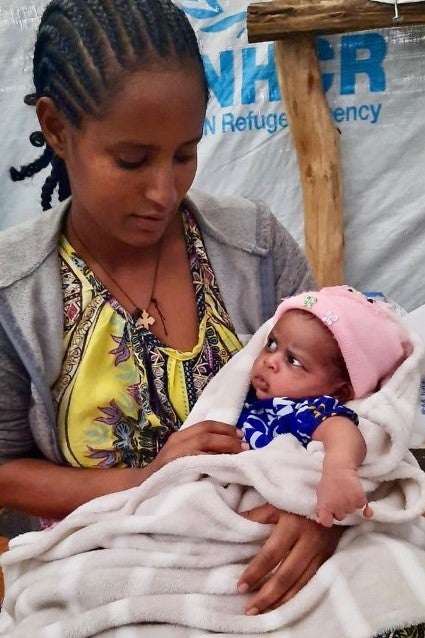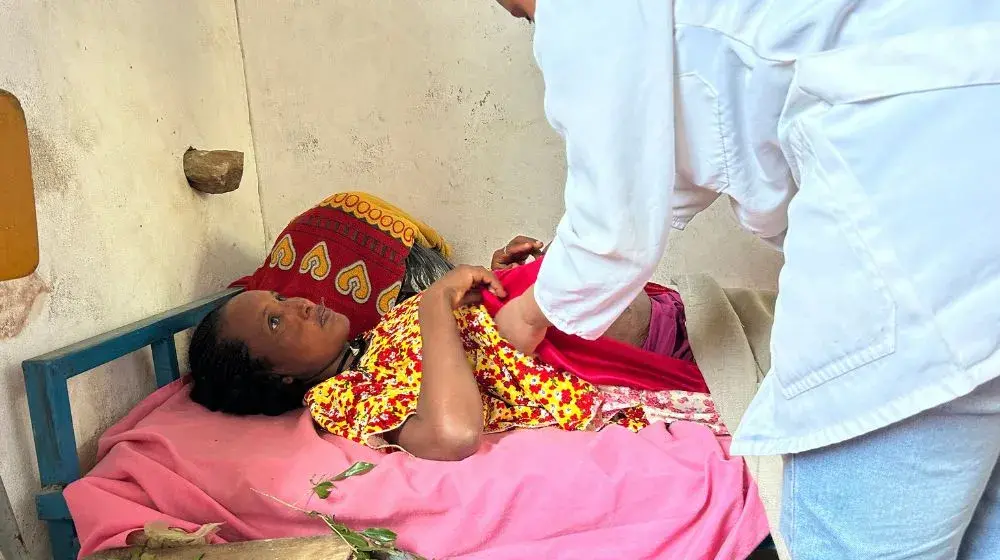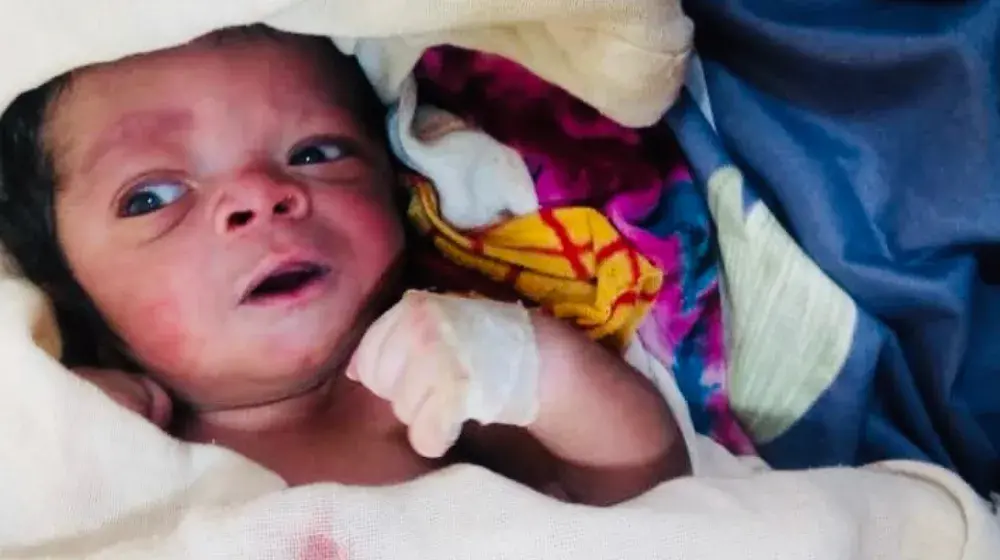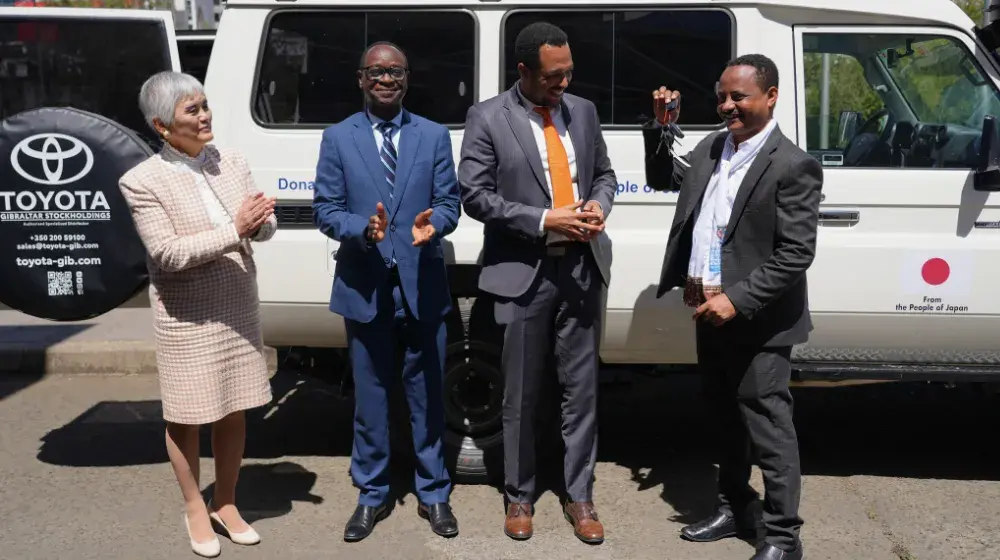Mekelle, Tigray - “They have saved my life and that of my daughter. I stayed under their care the whole night and delivered my baby girl safely,” says Selam, the first mother to deliver at the camp for internally displaced persons - Sabacare 4 – in Mekelle, Tigray.
After living for months in a school classroom with other 38 households, Selam was voluntarily relocated to the Sabacare 4 camp with her husband and daughter. The camp was set up temporarily at the outskirts of Mekelle, the capital of Ethiopia’s Tigray Region, which has been the epicentre of the conflict in northern Ethiopia since November 2020.
Childbirth can have a terrible ending, particularly for young women dealing with the added weight of displacement, malnutrition and limited access to sexual and reproductive health services.
“My labour started in the middle of the night. I was scared. We came to the Maternity Waiting Home and they tried to refer me to a hospital but there was no ambulance or any other vehicle. I was so afraid to lose my child,” says Selam to UNFPA.
“If they weren’t here that night, I will not be here today. I have named my daughter ‘Maedot’ to honor them for saving our lives,” adds Selam.
Enormous challenges
The reality is stark for pregnant women like Selam in Tigray. Nearly 118,000 women are estimated to be currently pregnant and at increased risk of maternal mortality and morbidity due to limited or no access to maternal health care in the region.

Amid grinding challenges, Maedot - a community-based health care organization - set up a Maternity Waiting Home with the support of UNFPA to provide the much-needed life-saving maternal health services at the Sabacare 4 camp.
“UNFPA kits and medical equipment including the solar panel for electricity have been very helpful to provide emergency care day and night,” says Rahwa Gedamu,
a nurse at Sabacare 4 camp clinic.
As the conflict reaches the one-year landmark, midwife-based interventions are critical in a situation where more than half of the facilities are not functional
and 60% of pregnant and lactating mothers are suffering from malnutrition.
“We receive between 10 to 15 cases on a daily basis from which at least two of them are critical. The situation is grave,” says Doctor Fiseha Gebreegziabher Maedot.
Delivering hope and saving lives
“I used to work at a hospital in Mai Kadra before I fled to Mekelle. Since then, I have been giving voluntary health service day and night for almost a year to save the lives of women,” says Rahwa Gedamu.
In Tigray alone, UNFPA has provided more than 592 SRH Kits and medical equipment across 25 health facilities. Skilled birth attendants and health extension workers have also been deployed to ensure provision of maternal and sexual and reproductive health services. Partnering with Maedot, UNFPA has recently set up a Maternity Waiting Home provided with SRH kits and other medical equipment while it’s exploring the expansion of service provision through an additional Maternity Waiting Home in Adigrat.
Despite the dire situation, all the personnel in Maedot say their work is very fulfilling “Every time we save a life like Selam and her daughter’s, we feel very proud and motivated to continue serving our people.”





